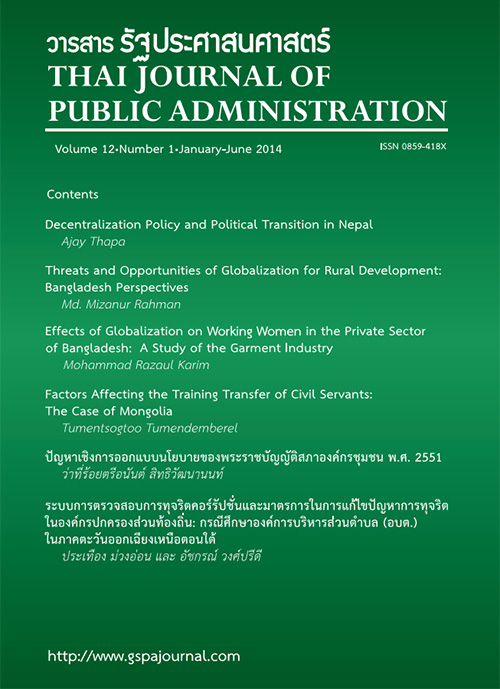Decentralization Policy and Political Transition in Nepal
Keywords:
Policy, Public AdministrationAbstract
Decentralization is one of the key reform efforts practiced in developing countries to strengthen good governance by enhancing, for instance, people’s participation, transparency and accountability. Nepal has been suffering, however, from a long political transition since the 1990s. Along with political and government change in the country, Nepal has experimented with different forms of decentralization ranging from deconcentration to delegation and devolution. The Local Self Governance Act (LSGA) 1999 devolved special power, authority, roles and responsibilities to the local bodies. From the perspective of decentralization policy implementation, the periods before and after July 2002 present different contexts. Due to a prolonged political transition and changing context, the decentralization and local self-governance system in Nepal have faced several constraints and challenges in planning, implementing and monitoring local level development activities. This article discusses some of the key constraints and challenges of decentralization policy in the context of political transition in Nepal.



